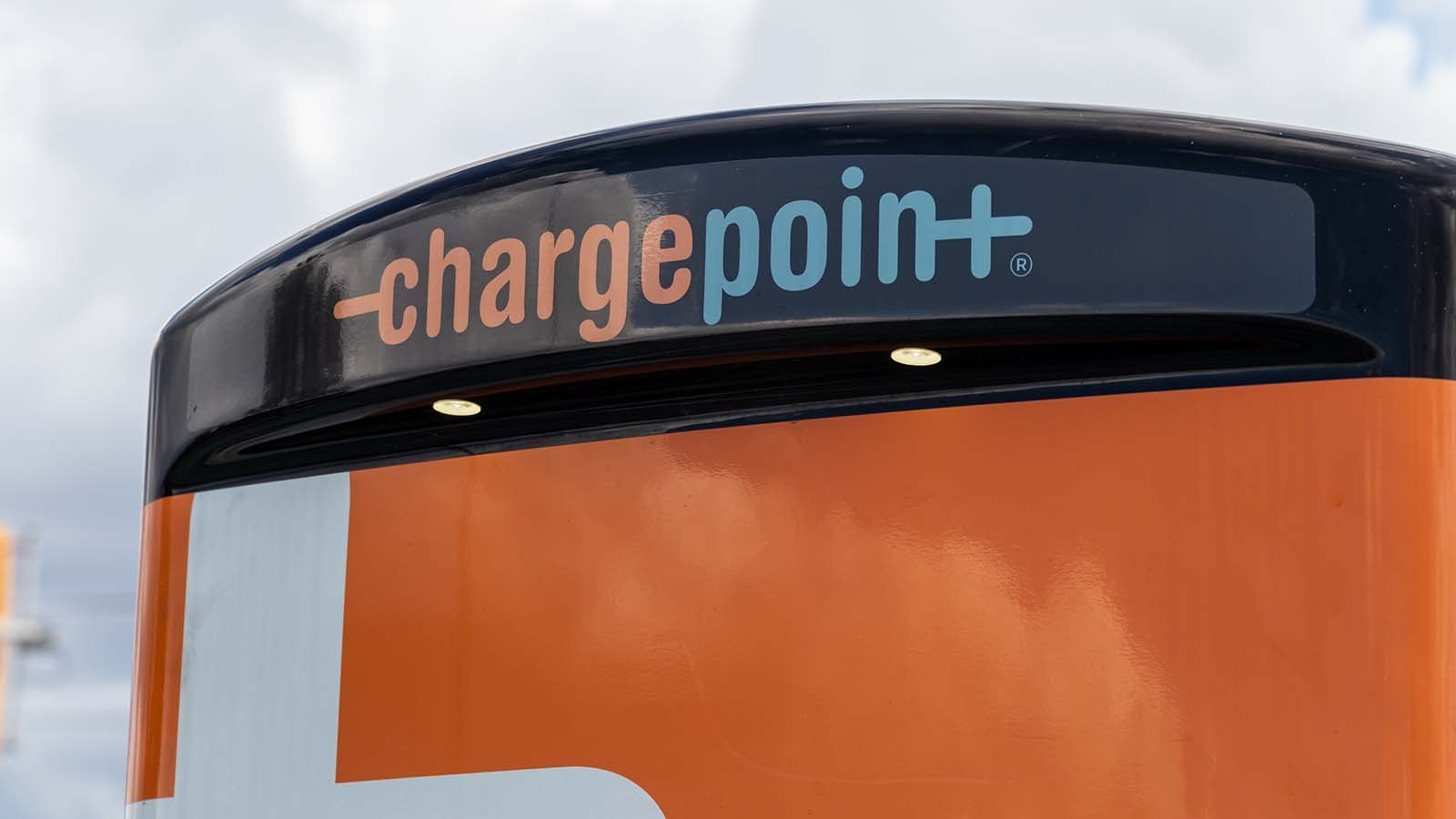ChargePoint Forecast: What Will CHPT Stock Be Worth in 5 Years?

ChargePoint Holdings (NYSE:CHPT) is growing rapidly, and its growth is likely to accelerate significantly over the medium term and long term. Moreover, I expect its price-sales ratio to increase as the Street becomes less worried about interest rates and focuses more on ChargePoint’s strong growth and future profits.
Given all of these points, I expect CHPT stock to more than quadruple from its current levels by 2026.
As I noted in a previous article, ChargePoint “sells electric-vehicle (EV) charging infrastructure and provides maintenance and software for its chargers.”
Rapid Growth That’s Poised to Accelerate
In the second quarter, the company’s top line jumped 39% versus the same period a year earlier. Several positive catalysts should significantly boost its growth going forward.
First, U.S. EV sales are growing quickly and frequently setting records. Last quarter, for example, those sales jumped a very impressive 50% year-over-year, coming in at a record 313,000. That number represented nearly 8% of total automobile sales. With gasoline prices high, acceptance of EVs continuously rising and the federal government’s tax credits boosting demand for EVs, their growth should only accelerate going forward.
Given the latter dynamic, more employers and commercial establishments, such as hotels, amusement parks, apartment buildings and malls, are likely to add EV stalls to their parking lots. Additionally, many companies will probably purchase EV chargers to support their own EV fleets. CHPT stock is well-positioned to benefit from all of these trends, as is already partnering with many Fortune 500 companies.
Moreover, automakers will probably add many more EV chargers, both to accommodate those who have already bought their EVs and to entice consumers to purchase their electric offerings for the first time. Indeed, one of CHPT’s key customers is Mercedes-Benz (NYSE:MBGAF), which is a leader in the luxury EV category. Mercedes is equipping “400 charging hubs” with ChargePoint’s chargers. Plus, CHPT partnered with Volvo on the placement of many EV chargers in Starbucks‘ (NASDAQ:SBUX) stores along a 1,350-mile swath of the western United States.
Also likely to boost ChargePoint’s growth going forward is its significant presence in Europe, where the market share of EVs is much higher than in the U.S.
Finally, after CHPT obtained a key security authorization from the American federal government, it can “bid for tens of millions of dollars in potential U.S. government” contracts, the company reported.
An Encouraging Profitability Target and a Much Higher Multiple Is Likely
Encouragingly, ChargePoint reiterated its target of generating positive EBITDA, excluding certain items, by the end of 2024. That suggests the company expects the combination of rapid revenue growth and the cost-cutting it is currently undertaking will enable it to move quickly towards profitability in the coming quarters. Consequently, I expect the firm to be profitable in five years.
Meanwhile, with the Street very bearish on fast-growing, unprofitable companies, CHPT stock has a very low price-sales ratio of just 2.1 times.
I believe many investors expect the vast majority of such companies, including ChargePoint, to go bankrupt.
But former Federal Deposit Insurance Chair Sheila Bair wrote on Oct. 2 that, even with high-interest rates, “Truly promising innovations will attract capital. They always do.” I agree with Bair, and I believe ChargePoint’s business of selling and servicing EV chargers is indeed very promising and innovative. Consequently, I expect ChargePoint to have no problem attracting funding from banks and/or investors going forward.
As the Street sees that the company is surviving and thriving, its price-sales multiple is likely to surge.
My Predictions on ChargePoint’s Numbers
In the next five years, I expect CHPT’s revenue to jump 250%, while its price-sales multiple will double, enabling its share price to more than quadruple.
On the date of publication, Larry Ramer did not hold (either directly or indirectly) any positions in the securities mentioned in this article. The opinions expressed in this article are those of the writer, subject to the InvestorPlace.com Publishing Guidelines.









